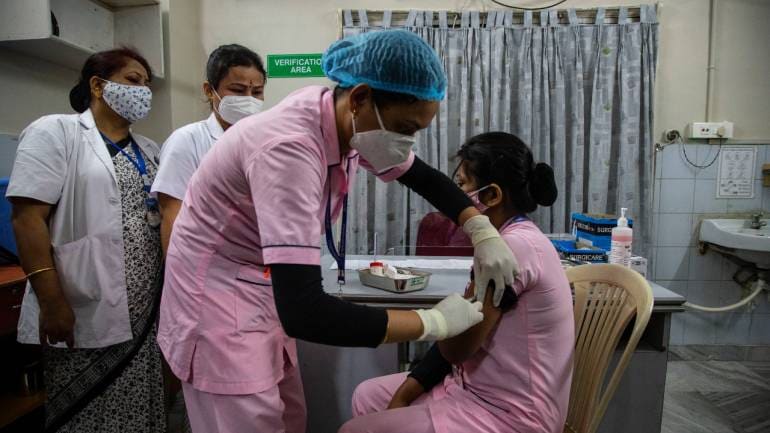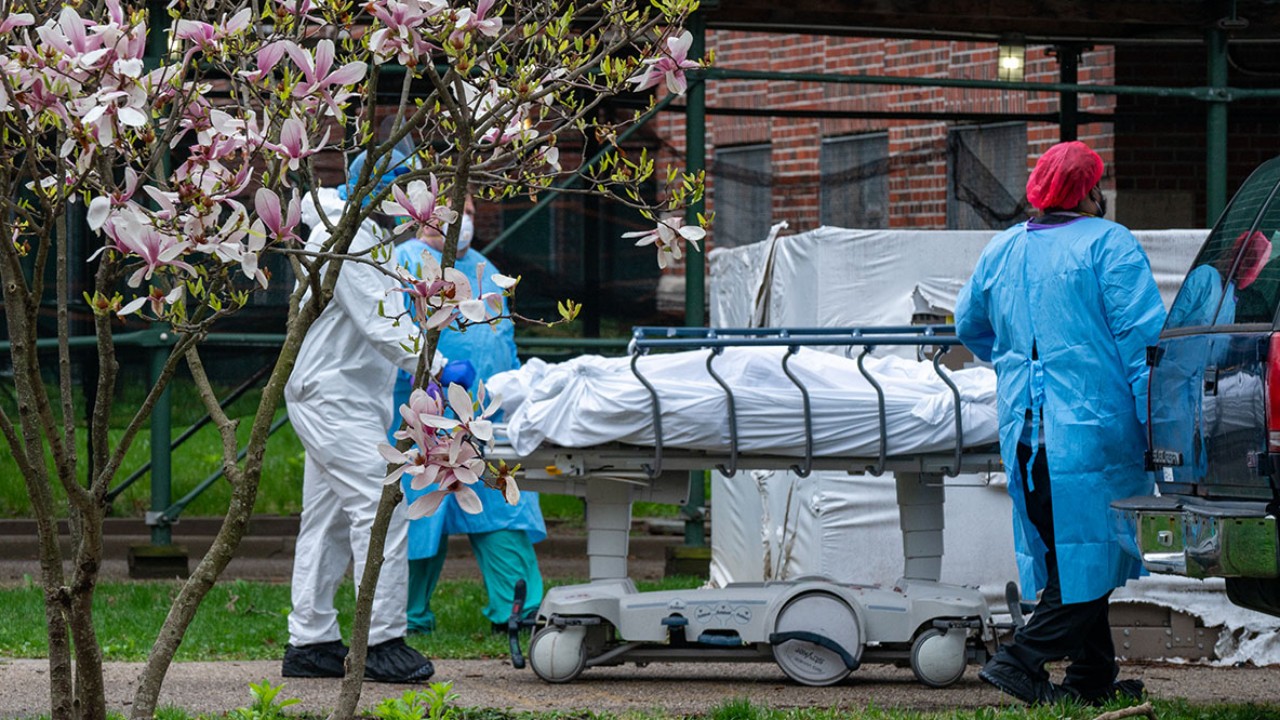Prime Minister Narendra Modi has launched nationwide Covid-19 vaccination drive on Saturday at 10.30 am. With one of the world’s biggest vaccination programmes, India is all set to overcome the pandemic that has claimed many lives, ravaged the economy, shut businesses, led to migrant crisis and unleashed unprecedented suffering over the last 12 months. There are 3,006 session sites across the country, where 100 beneficiaries each will be given either of India’s two indigenous vaccines, Covishield or Covaxin.
Amid rumours of safety concerns and efficacy of the vaccine, Bharat Biotech, which has received a government purchase order for supply of 55 lakh doses of Covaxin, says it will pay compensation to recipients in case of any serious adverse effects experienced after receiving the antidote.
Maharashtra CM Uddhav Thackeray inaugurated the vaccination centre at BKC Jumbo Covid-19 hospital. He said it is a revolutionary step. He asked people wear masks even after getting vaccinated.
The Covid-19 vaccination drive has begun at General Hospital in Vijayawada, Andhra Pradesh.
AIIMS Director Dr Randeep Guleria said he wants to assure everyone that the vaccine is safe and efficacious. He asked people to keep faith in and confidence in researchers, scientists & regulatory authorities.
Congress MP Manish Tewari questioned the government saying if the vaccine is so safe and reliable and that the efficacy of the vaccine is beyond question then how is it that not a single functionary of the government has stepped forward to get themselves vaccinated.
Chief Executive Officer (CEO) of Serum Institute of India Adar Poonawalla joined the Covid-19 vaccination drive to endorse Covishield’s safety and efficacy by taking the vaccine himself. He also wished PM Modi and entire country a great success in launching world’s biggest vaccination roll-out.
Covid-19 vaccination programme in Jammu and Kashmir has kicked off. The drive is taking place in Jammu Medical College & Hospital.
Uttar Pradesh Chief Minister Yogi Adityanath witnessed the vaccination roll-out programme at Balrampur hospital in Lucknow. He said 102 health workers would receive vaccine at the hospital today, out of which 15 people have been vaccinated and everyone of them are totally fine.
After witnessing the inoculation drive at LNJP hospital, Delhi Chief Minister Arvind Kejriwal said 8,100 people in Delhi will get vaccine at 81 vaccination centres. Experts said the vaccines are safe and that people should not believe in rumours, he added.
After India kicked off its Covid-19 vaccination drive, Union Health Minister Harsh Vardhan said this is probably the biggest immunisation campaign against Covid-19 anywhere in the world. He also joined corona warriors at AIIMS while inoculation drive began.
Bhutan Prime Minister Lotay Tshering congratulated PM Modi and people of India for the landmark launch of Covid-19 vaccination drive.
AIIMS Director Dr Randeep Guleria receives COVID-19 vaccine jab at AIIMS, Delhi.
The vaccination programme is aimed at inoculating over 3 crore health and other frontline workers in the first phase, second phase the number will be increased to 30 crores, PM Modi said.
PM Modi said two doses of the Corona vaccine are very important. Experts have said that there should be a gap of one month between both vaccinations. He requested people not to make the mistake of taking off their masks. Social distancing should be maintained after getting the first dose because immunity will develop after the second dose, he added.
Read Also: RML Hospital doctors write to hospital authority, want Covishield, not Covaxin due to incomplete trials
PM Modi said India has set an example for other nations at many steps. When countries left their citizens stuck in China amidst this pandemic, on their own, India stepped up & evacuated not only Indian citizens but also people of other nations under Vande Bharat mission.


 India News2 hours ago
India News2 hours ago
 LATEST SPORTS NEWS1 hour ago
LATEST SPORTS NEWS1 hour ago
 India News50 mins ago
India News50 mins ago
 India News60 mins ago
India News60 mins ago










